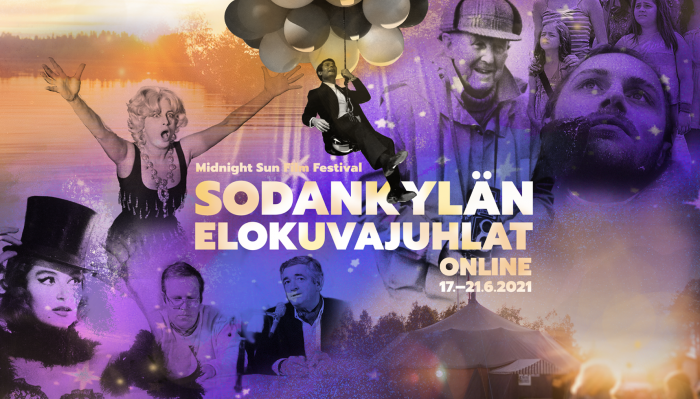The Midnight Sun Film Festival takes place online between 17–21 June. The programme of the 36th festival offers more than 60 domestic and international films accompanied by numerous discussions and interviews. The film programme is only available in Finland, excluding the screenings of Finnish Cinema 90 Years Ago and the feature film There Will Be Spring by Annika Grof (Finland 2020) which are available worldwide. Discussions and interviews are arranged in Finnish.
Finnish Cinema 90 Years Ago is a collection of Finnish films released in 1931. The programme consists of five feature-length films and a screening of short films. The films of this programme are free-of-charge for the worldwide audience, and the programme is produced in cooperation with the National Audiovisual Institute (KAVI).
There Will Be Spring is a harrowing drama about war-broken people in 1940s’ Finland wavering between desire and hate. The film is the first Finnish film spoken in the Livvi-Karelian language. Other films in the 2021 programme are only available in Finland.
The Gems of New Cinema strand presents some of the most accomplished international films of recent years. Most films of the programme will have their Finnish premieres at the festival, including Wife of a Spy by Kiyoshi Kurosawa (Japan 2020), Dear Comrades! by Andrei Konchalovsky (Russia 2020) and The Nest by Sean Durkin (UK, Canada 2020).
Also, a number of new Finnish films will be screened at the festival Premiering are the feature-length documentary How to Kill a Cloud by Tuija Halttunen (Finland, Denmark 2021) and the short comedy The Bouncer (Finland 2020) by Aleksi Salmenperä.
There are also many classics in the programme that have rarely been seen elsewhere in Finland. For example The Man with the Balloons (Italy 1968) by Marco Ferreri and Documenteur by Agnès Varda (France, USA 1981) will finally have their Finnish premieres at the Midnight Sun Film Festival.
Ferreri’s The Man with the Balloons, starring our posterboy of the year, Marcello Mastroianni, is presented in collaboration with our friends at Bologna’s Il Cinema Ritrovato. Other Italian gems in this special programme include films from two of Midnight Sun Film Festival’s former guests, whose morning discussions are also featured: Mario Monicelli‘s comedy The Passionate Thief (1960), starring Anna Magnani and Totò, and Nanni Moretti‘s autobiographical Cannes-winner Dear Diary (1993). Also from Bologna comes this year’s silent film classic: Nino Oxilia‘s blooming melodrama Rapsodia satanica (1917), starring the grand diva Lyda Borelli. The film’s score is by famed opera composer Pietro Mascagni. All four films are subtitled in English.
Several film specialists will give presentations and analyze films seen in the programme at special introductions. Introductions taking place online will be hosted by a leading film expert and verbal virtuoso Olaf Möller, animation expert Jennifer Barker, director Mika Taanila, an expert in Russian and Finnish film Lauri Piispa, professor of meteorology Timo Vesala and editor of Filmihullu magazine Lauri Timonen. For example films by Rainer Werner Fassbinder, Federico Fellini and Larisa Shepitko will be analyzed in the introductions.
The morning discussions have always been the cornerstone of the Midnight Sun Film Festival’s unique spirit. For the first two decades they were hosted by Peter von Bagh whose work has been continued by the artistic director of the festival, Timo Malmi, and many others. This year the festival offers a selection of the morning discussions recorded in earlier years.
In addition to the film screenings, the programme includes several discussions and other side events. The festival fun is completed with the virtual Festival Bar.
The Midnight Sun Film Festival Wishes to Thank the Partners and Sponsors
The Alfred Kordelin Foundation, Trade Union Pro, Finland Festivals, EU/Creative Media, Jenny and Antti Wihuri Foundation, the National Audiovisual Institute (KAVI), the Finnish Cultural Foundation – Lapland Regional Fund, Laitilan Wirvoitusjuomatehdas Ltd, the Ministry of Education and Culture (OKM), the Sodankylä Municipality, the Finnish Film Foundation (SES), Tieteen tiedotus ry, YLE.
